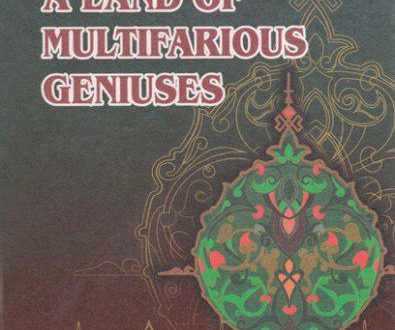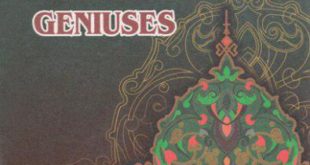A famous expert in Hadith science Abu Isa at-Termizi cites in his book that when al-Bukhari began to win the attention of scientists with his rare ability, Abdullah ibn Munir had mentioned: “Hey, Abu Abdullah! God created you as the pride and adorn of the nation!” At-Termizi adds: “Allah made orders that all of his wishes and endeavours would come true!” A historian of that time Shams ud-din az-Zahabi tells such an interesting story. According to the facts that had been mentioned by Khalid ibn Ismail, Imam al-Bukhari’s and his ideas about experts of Basra did not coincide with each other. At that time al-Bukhari was a teenager and he did not use to write down in his notebook the Hadiths he had heard but kept them in his memory at the lessons and disputes about Hadiths. After sixteen days of our studies at this school, we collected and copied out more than fifteen thousand Hadiths. And at the end of our lessons he asked us to show him the collected Hadiths and checked them attentively. Al-Bukhari retold them one by one and we corrected our mistakes in writing. Besides, he recited the whole collection of fifteen thousand Hadiths by heart”. Another expert in Hadiths Muhammad ibn al-Azhar as-Sijistani tells us another story about the rare abilities of al-Bukhari. He says: “We used to attend the lessons of the scientist Sulayman ibn Harab in the field of Hadiths and al-Bukhari also accompanied us at these lessons but he never used to write down the Hadiths. Some of us were interested to find out why he did not write the Hadiths into his notebook. The answer was: “He will write them down from his memory when he comes back home in Bukhara”. Sulayman ibn Harab was a famous learned man of his time and expert in Hadiths. He used to work in Holy Mecca as a qozi (a judge). He also had an excellent memory and used to cite thousands of Hadiths from his memory by heart. So Abu Hatam says: “Once I used to attend the lessons of Sulayman ibn Harab. The number of his students exceeded forty thousand and he died in 224 in accord with the Muslim calendar. Imam al-Bukhari was one of his disciples. Despite the great ability and deep knowledge,our teacher used to ask al-Bukhari to explain difficult matters concerning Hadiths, such as: “Explain us the mistakes made by Shu’aba”. It seems God presented al-Bukhari with greatest rare ability of thinking and analyzing the facts and events dealing with Hadiths that most of his teachers felt themselves embarrassed to deliver lessons in his presence”. Concerning with this matter it is noteworthy to mention the remarks of Fatkhibn Nuhan-Naysaburi. He said: “When I came to the lesson delivered by Ali ibn al-Madiyni, I saw Muhammad al-Bukhari sitting on the right side of the teacher. Explaining the meaning and essence of each Hadith, he used to look at Imam al-Bukhari with a great respect”. These facts show that Imam al-Bukhari was greatly respected by his teachers and students for his deep knowledge and well-wishing behaviour.
Some other historical sources inform us about the examinations that al-Bukhari had to take during his studies. They organized to check his knowledge and abilities in the field of Hadiths. Once such an examination was organized by the learned people of Baghdad in the house of Caliphate (Dar al-Khilafat). As a result of this examination, a well-known scientist of Baghdad Abu Bakr al-Kaluzani (died in 249 A.H.) wrote: “I have never met such an able scientist as Imam al-Bukhari. He would learn a book dealing with any field of science and after looking it through once he could learn the Hadiths by heart”.
When Imam al-Bukhari grew up enough to deliver lectures in the scientific gatherings in the Islamic centres of the East, his fame began to spread throughout the country. Hundreds and thousands of fans, followers and students began to flow to these centres. Sometimes the lecture halls used to be overcrowded. Such scientific gatherings and meetings were held in Basra, Baghdad, Hijaz (Mecca), Balkh and other cities of the East and at the end of his life, he also organized such lessons and disputes in his hometown Holy Bukhara.
As to the number of his students and followers, they were numerous. Concerning this matter a scientist Al-Firabri wrote: “I know that more than ninety thousand people attended his lessons”. Historians and some sources inform that there were some of his former teachers and tutors among the attendants of his lectures as well. Among them were such figures as Abdullah ibn Muhammad al-Masnadi, Abdullah ibn Munir, Is’haq ibn Ahmad as-Sarmari, Muhammad ibn Khalaf, ibn Qutayba, etc. They never used to miss his lectures. They were famous and acknowledged scientists of their time; nevertheless, they considered it honourable for themselves to attend al-Bukhari’s lectures and take part in these debates. Al-Bukhari’s contemporaries and colleagues of the same age with him were such famous figures of that time as Imam Abu Zur’a ar-Razi, Abu Hatam ar-Razi, Ibrahim al-Harbi, Abdullah ibn Mutiyn, Is’haq ibn Ahmad ibn Ziyrak al-Farsi, Abu Bakr Muhammad ibn Is’haq ibn Khaziyma, al-Qasim ibn Zakariyya, Muhammad ibn Abdullah al-Khadrami, Muhammad ibn Qutayba, Abu Bakr al-A’yin and others. They unanimously acknowledged the deepness and great amount of al-Bukhari’s knowledge in the science of Hadiths. These people were well-known scientists in the field of Hadiths, history, law and other branches of the Islamic science.
Among Imam al-Bukhari’s followers, we can see such well-known and learned people of that time having great fame in the country and abroad as the author of the book “As-Sahih” Imam Muslim ibn al-Hajjaj, the author of the book “Sunan” Abdurrahman an-Nasai, the author of the book “Al-Jami” Imam Abu Isa at-Termizi, the author and creator of a number of explanations in different branches of the Islamic science Imam Muhammad ibn Nasr al-Marvazi, Imam ad-Darimi, a famous lawyer and the author of the book “As-Sahih” Imam ibn Khuzayma, etc.
These followers and former students of Imam al-Bukhari became famous and acknowledged lawyers and experts in the science of Hadiths.
Ubaydulla Uvatov Professor, Doctor of History
Press service of ISRCIB
 Imom Buxoriy xalqaro ilmiy-tadqiqot markazi bukhari.uz
Imom Buxoriy xalqaro ilmiy-tadqiqot markazi bukhari.uz










